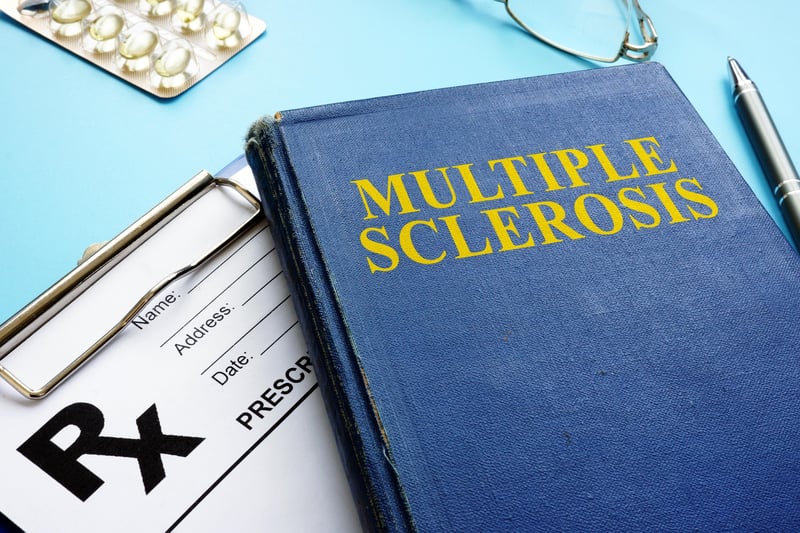Get Healthy!

- Denise Mann
- Posted April 21, 2023
Used Early, Drug Might Delay MS Symptom Onset
Growing numbers of people have MRI brain scans to find out what's causing their headaches, see if they have a concussion or for another reason, when a doctor may spot the tell-tale lesions of multiple sclerosis (MS).
Called radiologically isolated syndrome, this occurs in people who have no MS symptoms but whose scans show abnormalities that are similar to those seen with MS. For doctors, the question has always been: Should these folks be treated or is it better to watch and wait?
Now, a new study suggests that the disease-modifying MS drug Aubagio (teriflunomide) may delay the onset of MS symptoms in people with this syndrome. This drug is approved to treat several other types of MS, an autoimmune disease in which the body's defense system mistakenly attacks the insulation around its nerves (myelin sheath).
MS disease-modifying drugs like teriflunomide are not cures. They work by slowing down the disease process.
Right now, there are no approved disease-modifying therapies for radiologically isolated syndrome. The research was supported by Sanofi, the company that makes teriflunomide.
For the study, 89 people with radiologically isolated syndrome were treated with teriflunomide or a placebo and followed for up to two years to see who developed MS symptoms. Eight people who took the drug developed MS symptoms, compared to 20 who received a placebo during the follow-up period.
People taking teriflunomide had a 72% lower risk of experiencing first MS symptoms than those taking the placebo, the study showed.
"Our findings suggest that early intervention with teriflunomide may be beneficial to those diagnosed with radiologically isolated syndrome, the presymptomatic phase of MS,"said study author Dr. Christine Lebrun Frenay, a neurologist at the University Hospital of Nice in France.
Still, she cautioned that more research is needed in larger groups of people to confirm the new results.
The findings were presented Wednesday at an American Academy of Neurology meeting held virtually and in Boston. Findings presented at medical conferences are considered preliminary until published in a peer-reviewed journal.
Outside MS experts were cautiously optimistic about the role that disease-modifying drugs may play in staving off early symptoms of MS among people with radiologically isolated syndrome.
"Until now, we haven't had many studies that tell us what happens if we treat people with this syndrome," said Dr. Barbara Giesser, an MS specialist at the Pacific Brain Health Center in Santa Monica, Calif.
Some people may go on to develop MS symptoms, and others may not. Risks for MS progression in this population include being male, having spinal cord involvement and certain spinal fluid abnormalities, and being under the age of 37, she said.
"This adds to previous literature suggesting that treating people with this syndrome with disease-modifying therapy may delay their first MS-related clinical event, but we do need to conduct larger studies before drawing any conclusions,"said Giesser, who was not involved in the new study.
Another study showed similar results with a disease-modifying MS drug called Tecfidera (dimethyl fumarate), she noted.
"When evaluating a person with this syndrome, I take a careful history to see if there may have been previous MS symptoms, do a neurologic exam and image the spinal cord, and maybe order a spinal tap," she said. "If the patient has those risk factors, I might offer treatment. It depends on patient preferences and is a joint decision."
Julie Fiol, associate vice president of clinical innovation and strategy for the National MS Society in New York City, agreed that it is soon to make a blanket recommendation for how -- or if -- doctors should treat individuals with radiologically isolated syndrome.
"More specific recommendations for treating radiologically isolated syndrome could be forthcoming as evidence is building,"she said. "For now, doctors should be discussing their specific risk factors for progressing to MS [with each patient], understanding their patient's goals for managing their disease, and working together to develop a treatment plan that is best for them."
More information
Learn more about the types of MS and their treatments at the American Academy of Neurology.
SOURCES: Barbara Giesser, MD, MS specialist, Pacific Brain Health Center, Santa Monica, Calif., and fellow, American Academy of Neurology; Julie Fiol, RN, associate vice president, clinical innovation and strategy, National MS Society, New York City; April 19, 2023, presentation, Academy of Neurology, Boston






